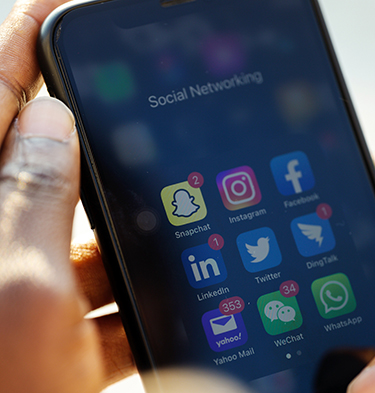Social media can pose a “profound risk” to the mental health and well-being of children and teenagers, according to new advisory from the U.S. surgeon general.
While the science on social media’s impact on youth continues to be researched, data collected so far suggest that “social media use is associated with harm to young people’s mental health,” U.S. Surgeon General Vivek Murthy said in a news release.
The May 23 advisory recommends that parents, policymakers and technology companies take “immediate action to protect kids now.”
Policies to protect youth from overuse of social media and inappropriate content are insufficient, the 25-page advisory said. Ninety-five percent of teenagers use social media, with two-thirds reporting daily use. A quarter of teenagers said they spend more than five hours a day on platforms.
More than a third of adolescent girls feel “addicted” to the platforms, the “Surgeon General’s Advisory on Social Media and Youth Mental Health” said.
“Children are exposed to harmful content on social media, ranging from violent and sexual content to bullying and harassment,” Murthy said. “We are in the middle of a national youth mental health crisis, and I am concerned that social media is an important driver of that crisis — one that we must urgently address.”
There can be some benefits to limited social media use. Sixty-seven percent of teens said social media makes them feel like they have support in difficult times, 71% liked using social media as a creative outlet and 80% use social media to feel connected to their friends.
“It can help them, and all of us, live more connected lives — if, and only if, the appropriate oversight, regulation and guardrails are applied,” Susan Polan, PhD, APHA’s associate executive director of public affairs and advocacy, said in a news release. “It’s critical that we undertake this collective effort with care and urgency to help today’s youth.”
The surgeon general’s advisory offers a “roadmap” to address the negative impact social media has on youth, Polan said.
Policymakers can work to increase safety standards to protect children’s privacy online, the advisory recommended. Technology companies that run the platforms can study the impact their products have on children and implement security and safety measures. Parents and caregivers should talk to kids about limiting screen time, reporting problematic content and being cautious about sharing personal information online.
Also on Tuesday, the White House announced additional actions to safeguard children from social media dangers. One action is a new task force led by the U.S. Department of Health and Human Services that will examine risk factors and develop actions to protect children’s privacy, health and safety.
Photo by Dylann Hendricks, courtesy Pexels.